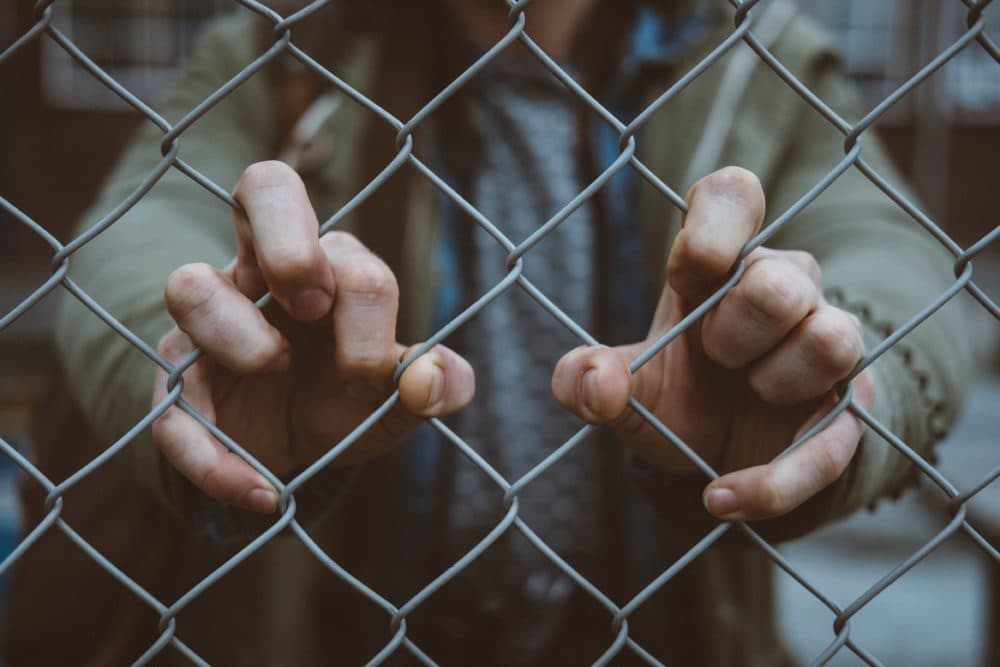Advertisement
commentary
The Most Powerful Philanthropy You've Never Heard Of: Paying Strangers' Bail

Want to make a difference with your charitable giving this holiday season? Pay someone’s bail.
No, it’s not a typical year-end donation to the American Red Cross or your college endowment. But through local or national philanthropic bail funds, you can contribute directly to individuals’ release from jail before trial, typically for low-level, non-violent offenses. By helping low-income defendants avoid the potentially permanent harm from pretrial incarceration — including lost jobs, missed childcare and worse legal outcomes — the impact is enormous.
Cash bail is theoretically intended to motivate defendants to show up at their court hearings. This system is supposed to reflect the ideal that people are innocent until proven guilty and therefore shouldn’t lose their freedom unless they’re a flight risk or clear danger to the community. And yet, this ideal is not reality for all Americans: The wealthy easily pay bail and head home while the poor languish for days, weeks or longer behind bars.
Approximately 465,000 people across the United States are currently incarcerated while they wait for their trials. Thousands are jailed solely because they can't afford to pay cash bail, often for low level, non-violent offenses like shoplifting or drug possession. Nationwide data is limited, but a 2015 study in Middlesex County, Mass. found that 23 percent of pretrial detainees were incarcerated because they couldn’t afford bail of $1,000 or less.
The wealthy easily pay bail and head home while the poor languish ... behind bars.
Pretrial detention disrupts and damages individuals’ lives, often permanently. Detainees can lose their jobs, miss rent payments, get evicted from their homes, and sacrifice their children to foster care. Their families and friends must cope without a key caretaker or breadwinner.
And perhaps worst of all, the logistical and psychological nightmare of fighting a case behind bars worsens detainees' legal outcomes. Low-risk defendants detained pretrial are four times more likely to receive a prison sentence and three times more likely to receive a longer sentence compared with those released pretrial, even controlling for demographics and case characteristics. Pretrial detainees are also more likely to plead guilty to a crime -- 43 percent, compared to 21 percent of defendants not held in jail, one study found -- even when innocent, compared with individuals released pretrial.
Cash bail has become a type of income-based injustice that violates equality under the law and the principle of innocent until proven guilty.
Advertisement
Fortunately, a network of charitable bail funds is working to right this wrong.
In the Bay State, the Massachusetts Bail Fund raises money from private donors to pay cash bail of up to $500 for low-level offenders. The fund bails out approximately 40 individuals each month, all of whom are referred by the public defenders representing them. Over the past two years, the fund has posted more than 1,000 bails at a cost of roughly $425,000.
Fortunately, a network of charitable bail funds is working to right this wrong.
The Massachusetts Bail Fund reports that 94 percent of its recipients showed up for their court dates. Half of them ultimately saw their cases dismissed.
This means that without the fund, more than 500 people never convicted of a crime could have spent weeks or months sitting behind bars because they were too poor to pay bail.
Bail funds have grown in number as pretrial incarceration issues have captured national attention. The Massachusetts Bail Fund belongs to the broader National Bail Fund Network, which now includes 33 funds across 21 states. And a group of activists recently launched a national effort called The Bail Project, which has set an ambitious target to release 160,000 pretrial detainees over the next five years. Numerous organizations and philanthropists have jumped on board. The Philadelphia Eagles made a $50,000 contribution to the Philadelphia Community Bail Fund this Thanksgiving.
But bail funds remain just a tiny fraction of overall charitable giving, making them perhaps the most overlooked form of high-impact donation. Given the vicious chain of events that stems from a single arrest, even a small contribution to a bail fund can change the entire trajectory of a person’s life. Plus, this contribution is recyclable — bail dollars are returned when the recipient shows up for his or her court date, ready to be used for the next person.
To be sure, bail funds are Band-Aids. The underlying injustice of cash bail must be solved through policy changes at the state and local levels. California and New Jersey have already made needed reforms by transitioning to systems that base pretrial release on defendants’ likelihood to commit future crimes, and Massachusetts recently created a commission to reevaluate its bail procedures. But in the absence of more rapid transformation, crowdsourced justice is a necessary replacement.
So donate to a bail fund. It’s tax-deductible.
